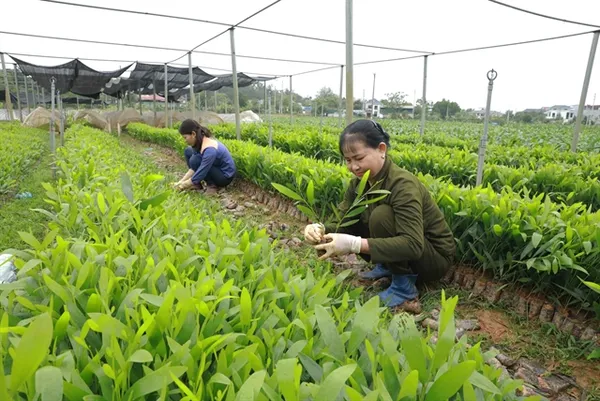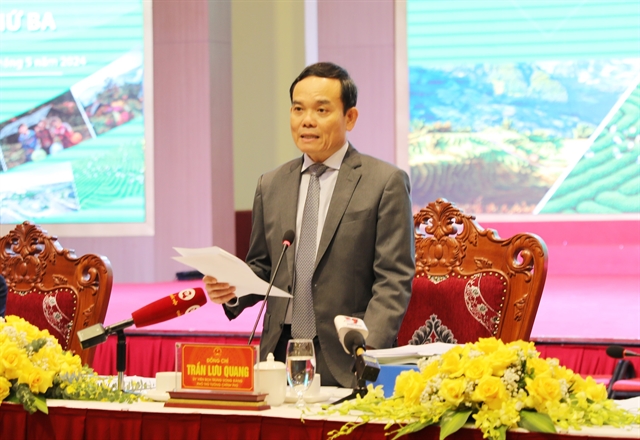 Society
Society

 |
| Deputy Prime Minister Trần Lưu Quang, Chairman of the NMMR Coordination Council, speaks at the conference. — VNA/VNS Photo Tạ Văn Toàn |
PHÚ THỌ — A master plan for the northern midlands and mountainous region has ambitious growth targets of an eight per cent growth rate, every year, between now and 2030.
The plan represents a significant step forward, embodying new mindsets and visions and demonstrating a proactive approach to development.
That message was delivered by Nguyễn Chí Dũng, Minister of Planning and Investment, at the region's coordination council conference on Friday.
He said the plan centres around addressing major inter-regional and inter-provincial issues and mobilising resources for rapid sustainable development, aiming to raise the area's Gross Regional Domestic Product (GRDP) to between 7.5 and 8.0 per cent, GRDP per capita to between US$15,000 and $18,000 and the Human Development Index to more than 0.75.
The plan also covers topics including the preservation of cultural identities of local ethnic groups, human resource quality enhancement and talent retention and the promotion of culture-based tourism and agriculture.
Several measures have been put forward in the plan including building 'ecological corridors', strips of vegetation that link forests and ecological sites, improving forest quality and introducing new types of forest-linked services such as carbon sequestration.
It also underlines the significance of inter-regional infrastructure projects in improving NMMR's connectivity with other regions and countries, especially with Laos and China.
The high-speed rail projects connecting Lạng Sơn-Hà Nội and Lào Cai-Hà Nội-Hải Phòng-Quảng Ninh will be accelerated in that regard.
Under the plan, five 'economic corridors' and an 'economic cluster ' will also be established to strengthen the economic ties between provinces, namely Lào Cai-Yên Bái-Phú Thọ-Hà Nội, Lạng Sơn-Bắc Giang-Hà Nội, Điện Biên-Sơn La-Hòa Bình-Hà Nội, Hà Giang-Tuyên Quang-Phú Thọ-Hà Nội, Cao Bằng-Bắc Kạn-Thái Nguyên-Hà Nội and Bắc-Giang-Thái Nguyên-Phú Thọ.
The Minister called for close cooperation between local governments and the establishment of a robust mechanism to implement the plan.
Deputy Prime Minister Trần Lưu Quang, Chairman of the NMMR Coordination Council, acknowledged the challenges faced by the region, but applauded efforts of local governments in leveraging their strengths for development.
He also highlighted innovative approaches adopted by some local authorities, emphasising the need for wider adoption of such practices.
He noted that regional coordination initiatives, despite having been in place for some time, had not worked out as well as expected, due to NMMR's resource constraints, infrastructure deficiencies and weak links.
On those grounds, he urged the local authorities to focus on implementing the council-approved projects to accelerate the region's growth, especially those related to infrastructure development, climate change response and digital transformation.
The area is home to a diverse population of ethnic groups with unique cultural identities and a wealth of historical and cultural sites.
It also plays a crucial role in national water and environmental security and serves as the 'fence' of the northern gateway into Việt Nam. — VNS




